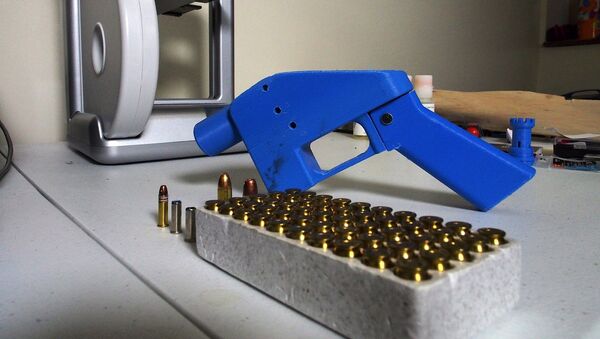US District Judge Robert Lasnik in Seattle has extended his own ban preventing Texas-based company Defense Distributed from posting blueprints for 3D-printable guns online Monday.
His new ruling prolongs the ban Lasnik originally imposed July 31, hours before the official time Defense Distributed was to publish its blueprints. Despite the publication of the blueprints having been officially scheduled for August 1, the company actually uploaded the schematics a couple of days earlier, allowing for numerous downloads before the official date of release.
The judge argued that the company's First Amendment concerns were "dwarfed" by the states' safety considerations.
The schematics in question allow for 3D-printing of the "Liberator," a single-shot plastic weapon, which must, upon printing, be equipped with a metal hammer (usually made out of a common nail) and is required by law to be fitted with a massive metal piece to make the weapon discoverable by metal detectors.
The Liberator, despite its exotic manufacturing process, is legally equal to other so-called "ghost guns," i.e. guns bearing no serial number and therefore no registration with law enforcement. According to US law, possession of such guns is not illegal; selling them, however, is.
Cody Wilson, founder of Defense Distributed and creator of the Liberator, has reportedly called Lasnik's ruling an "intentional insult," according to Reuters.
"The order is a manifest injustice and literally admits to being an abridgment of the freedom of speech," Wilson said in his statement.
The publication of the blueprints became possible after Defense Distributed reached a settlement deal with the Trump administration, which ended a legal process that had lasted for several years already.
The blueprints were originally ordered to be taken down by the US State Department, which argued that their publication violated US arms export laws. It should be noted, however, that the blueprints have been downloaded thousands of times since their original publication and are currently available through various websites and torrents.
Proponents of printable guns argue that producing such weapons is a costly and complicated procedure and that the Liberator won't significantly change the current "ghost gun" situation.




